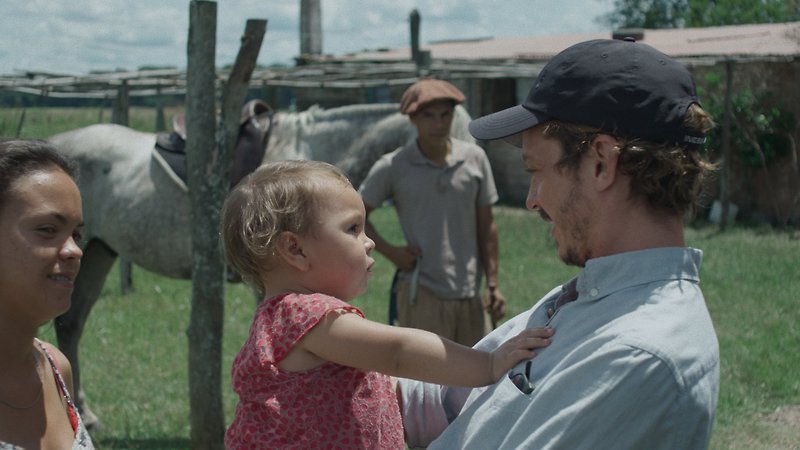Subtle and slow-burning, this quietly perceptive rural drama elegantly exhibits the social barriers and economic polarities operating in contemporary Uruguay.



Not only a class study, but a nuanced exploration of guilt, responsibility and emotional manipulation.
Screened as part of NZIFF 2021
The Employer and the Employee 2021
El empleado y el patrón
| Nov 07 | | ||
| Nov 17 | | ||
| Nov 20 | |
Rodrigo (Nahuel Pérez Biscayart) and Carlos (Cristian Borges) are two young men from different social backgrounds. Rodrigo, the son of a wealthy farmer, is used to a life of leisure and mobility, whereas Carlos is accustomed only to the countryside, spending his days operating tractors and caring for horses. The only responsibility the two men have in common is the need to provide for their young families, leading Rodrigo to offer Carlos employment on his family’s farm. A friendship based on mutual understanding and respect quickly develops between them. But when tragedy strikes, the ties that bind the two become strained, placing the future of both families in jeopardy.
Fresh from its premiere at Cannes’ Directors’ Fortnight, The Employer and the Employee is the third feature from acclaimed Uruguayan writer/director Manuel Nieto Zas. Bolstered by layered performances from its talented cast, the film’s seemingly contemplative narrative belies increasing levels of tension and dissatisfaction within the relationships at its centre, as it tests complicated ideas around family and work. — Barnaby McIntosh
“Formal and plot details move the film away from possible common places around the figure of a cinema about the rich and the poor, and take it to the territory of the thriller where Nieto Zas appears firmly and with not a few creative ideas (or outputs).” — Mónica Delgado, Desistfilm